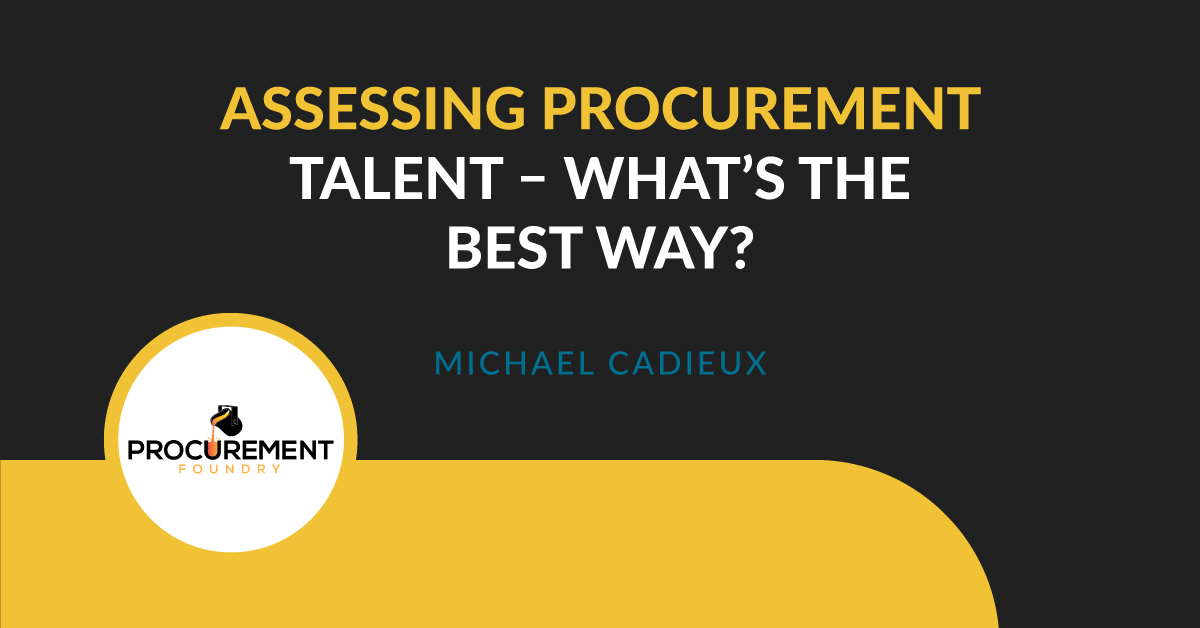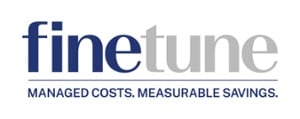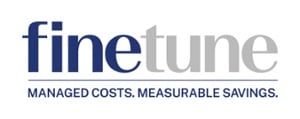Maximizing Savings Opportunities and Procurement's Strategic Value for CPOs
Saving money is not always about pinching pennies: advanced and data-driven insights enable you to identify real cost-saving opportunities, negotiate...

Anyone familiar with the Foundry already knows that we are continuously engaged in lively discussions within our online community. One such recent conversation really got me thinking, so much so that I felt it deserved its own article to delve further into the depths of its many-layered nuances. The topic surrounded the struggle people encounter when attempting to fill a priority procurement role.
Assessing procurement talent is nothing new, but what we deem as pivotal to fulfilling the role is constantly evolving, leaving us to wonder: “What´s the best way, today?” This article will address this very question, explaining why we feel procurement talent should be assessed on both hard and soft skills.
How this whole thing got started was when a member of the Foundry posed an excellent question, asking the community if anyone had any recommendations for a good test that worked well for selecting their procurement team. One member instantly replied with a suggestion to check out the Institute for Supply Management (ISM) and its skill matrix known as the Supply Chain Capability Model (formerly the Mastery Model).
ISM developed the Supply Chain Capability Model in order to assist the profession in achieving standardization practices. Specifically, according to the ISM website, the model is “a comprehensive set of competency-based standards comprised of 16 core competencies and more than 70 sub-competencies,” among which include Business Acumen & Leadership, Category Management, Financial Analysis, and more. The model also categorizes skill levels at four stages of career maturity—from Fundamental to Proficient, then to Advanced, and finally, Mastery—the aim of which is to allow the gauging of level of proficiency in progression.
A second Foundry member piped up and issued a reason for their hesitancy with the ISM model (sharing the opinion it is a little narrow and may not cover the whole scope of work), then voiced a plug for what is known as the IAOP Ten Competencies.
The Foundry member specifically pointed to IAOP—citing its Ten Competencies in particular—as being a superior option for a valuable resource in assessing procurement talent due to the fact that they cover the entire sourcing lifecycle and then add a few details for each one, along with some hard skill items (like folks who buy software or IT services have technical skills in IT and data analytics), and soft skill items.
Soft skills are defined as being attributes and personality traits that help employees interact with others and thrive in the workplace. A few examples of soft skills include the ability to communicate, mentoring capabilities, aptitude for leadership, negotiation prowess, and more. Sadly, these vital skills are often overlooked—or deemed as less important criteria—when assessing procurement talent. To be clear, soft skills are absolutely crucial.
There are so many soft skills that go into procurement, such as the need for active listening skills, being able to master difficult problems, design acumen, and more.
Technical skill assessments are great, but if you can’t assess for soft skills, you’re in trouble.
Now, it’s great—and necessary—to have all of the above, but in the end you also need to assess procurement talent for industry expertise. This is where the assessment process becomes much more difficult. Why?
Well, simply put, there’s the technical aspect of it. Think about it this way—I´ll give you a hypothetical example: You’re supposed to be buying a technology-related contract. What do you know about telecom? Do you know the difference between a T3 versus a T1? Do you know what a router is versus an edge device application, versus an accelerator? Do you know the difference between a 4G versus 5G?
These things are important! In the niche arena where you are working, you simply have to have the technical expertise (yes, including being fluent in all that jargon!) in order to appropriately navigate—and own—your specific role and responsibilities. For instance, if you're procuring marketing and you don't know what the heck digital programmatic buying is… well, you get my point. Dropping the mic now…
Interested in learning more? Sign up to become a member of the Foundry and join us in any of our next events.

Saving money is not always about pinching pennies: advanced and data-driven insights enable you to identify real cost-saving opportunities, negotiate...

The topic of our recent roundtable discussion with a dozen Procurement Foundry community members—exploring potential flaws in procurement incentive...

Every 30 days or so, I get the same alert on my phone—“Your electricity bill is available for viewing.” I take a quick look, make sure nothing seems...